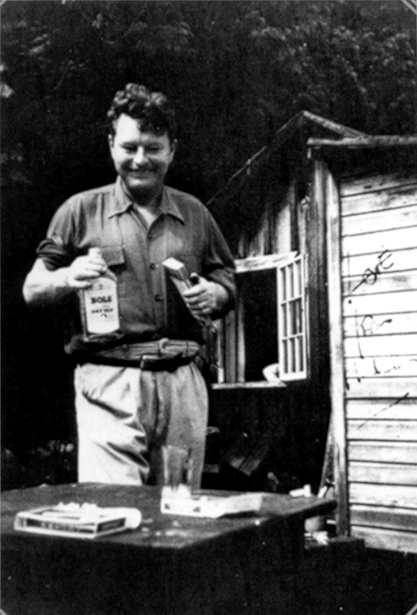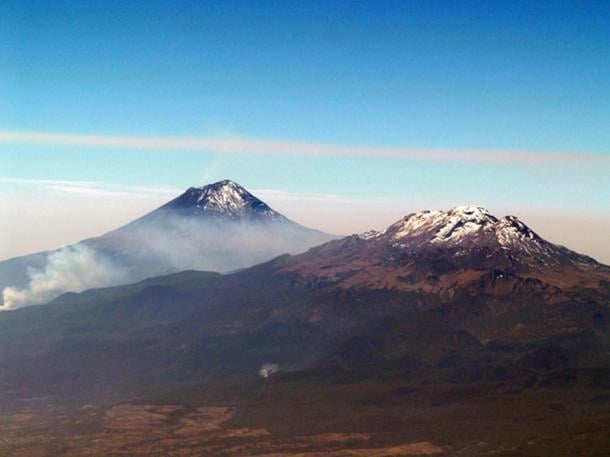Under the Volcano, first published in 1947, is the second novel by the English writer Malcolm Lowry, and is perhaps one of the most fascinating—as well as exhausting—novels I’ve ever come across. By today it’s regularly considered a classic text, and is routinely placed within many of the most esteemed ‘Best Of’ lists of modern literature. It’s also one of those books that seems to be referenced by many popular artists as being a huge influence on their own life and work. Bob Dylan, for example, seems to go on about it quite a lot, while Stephen Fry has named it as one of his favourite novels of all time. When I describe this novel as ‘exhausting’, I really do mean it; it’s at once complex, heavily symbolised, and utterly insane, and very often its prose diverges into near-maddening reveries that are replete with references to historical, literary and philosophical thought. I’m not necessarily saying that this is a bad thing, it just means that it takes a little while to acclimatise to the way the novel is written and what it’s trying to do. But once you really get into it, you quickly begin to realise why it’s considered such a classic.
It’s almost impossible to discuss Under the Volcano without going into the background of the author beforehand, because the novel is essentially about Malcolm Lowry himself, and it’s almost as if the process of writing it was for him a form of therapy. Lowry, to say the very least, was the most raging of raging alcoholics, and his severe alcoholism penetrates every aspect of the text. Lowry apparently began drinking at the age of 14, and from thereon his alcohol consumption became steadily more severe, eventually culminating in his mental breakdown and subsequent admittance into a psychiatric hospital around ten years before the publication of Under the Volcano. The prose used throughout this novel mirrors Lowry’s alcoholic delirium remarkably well; there are large parts of the novel where it even seems as if the third-person narrator himself is, well, completely off his tits. Overall, Under the Volcano is undeniably one of the definitive texts on alcoholism in all of literary fiction.

Malcolm Lowry
The novel takes place within a single day (the 2nd of November, 1938), primarily within the small Mexican town of (ahem) Quauhnahuac, during Mexico’s annual Day of the Dead festival. The central character of the story is a man named Geoffrey Firmin, an alcoholic British diplomat who to the locals is known simply as ‘the Consul’. The Consul is a man whose alcoholism has become so extreme that he’s no longer able to perform basic, daily tasks such as putting his socks on. The consumption of alcohol is, for him, no longer a purely pleasurable activity; he drinks to function, and without alcohol he is, quite simply, a quivering wreck. It should come as no surprise then that the Consul is based almost wholly on Lowry, and that the novel represents a largely fictionalised account of his own experiences whilst living in Mexico. Anyway, on the morning of the Day of the Dead, while the Consul is drinking whisky at a local bar, his estranged wife Yvonne meets up with him, having just returned to Mexico with the aim of seeing whether there’s anything left of their marriage to salvage or rekindle. This sparks off the events that are about to follow, and the relationship between the Consul and Yvonne, with all its tumultuousness, plays a central role in the novel’s plot.
Mixed up in all of this is the Consul’s half brother Hugh, who is temporarily staying at the Consul’s house in preparation for taking a long trip elsewhere on the very day that the novel is set. Jacques Laruelle, an old friend of the Consul’s who also finds residence in Quauhnahuac, is another prominent figure in the story. Both Hugh and Jacques previously had love affairs with Yvonne during the periods in which her marriage was going downhill, and in many ways their presence at Quauhnahuac throws a spanner in the works for the Consul, who, despite his personal struggles and erratic behaviour, is desperate to get back with his wife, who he still loves dearly. The latent tensions that exist between these characters deeply interweave themselves throughout the narrative, and as the novel goes on we begin to dig deeper and deeper into their histories and biographies, and the ways in which they are each connected are revealed to us. Yet all these connections revolve around one thing: the relationship between the Consul and Yvonne, and whether it’s even possible, despite their love and respect for one another, to get their marriage back on track. We finally get an answer to this impending question in the final chapter of the novel, which, without spoiling anything, culminates in a series of events that are profound, even heart breaking. The looming presence of (ahem!) Popocatepetl and Iztaccihuatl—a pair of enormous, unpronounceable volcanoes situated on the outskirts of Quauhnahuac—is constant throughout (hence the novel’s title), which provides the novel with an almost hellishly brooding backdrop. And whilst Iztaccihuatl lies dormant on the horizon, Popocatepetl is still very much active, and these two volcanoes can therefore be seen as a haunting and ever-present symbol of the Consul’s and Yvonne’s marriage.

Popocatepetl and Iztaccihuatl, Mexico
The style that Under the Volcano utilises has clear links to the kinds of literary modernism previously employed by authors such as Joyce, particularly within Ulysses (which also takes place within a single day). Although whilst Ulysses’ heavy stream of consciousness narrative gives off an almost dream-like quality, the narrative style of Under the Volcano resembles more of a nightmare—a drunken nightmare, to be more exact. In many ways the novel causes the reader to feel trapped within the same vicious circle that the Consul finds himself in, and this is due in large part to its cyclical form, where it seems as if the Consul is doomed to repeat the same mistakes over and over again. In amongst all of this are many references to other works of fiction, including those of Shakespeare, Faust and Marlowe, which sit alongside allusions to some dense Greek mythology and the Kabbalah (including many others that I’m sure went straight over my head). I mean it’s all there—Lowry was certainly never one for simplicity!
While Under the Volcano is far from a simple read, it’s nonetheless a really powerfully written and truly fascinating novel. It often feels like a Rubik’s cube that needs constant care and attention in order to unlock, and almost certainly requires more than one reading in order to fully comprehend it. Yet the most interesting aspect of Under the Volcano, for me, is the way in which it takes you on a hellish journey that is constantly tossing and turning you in directions that are surprising and unexpected. I highly recommend this novel to anyone who’s yearning for a different, perhaps even challenging reading experience. So just pick it up and go along for the ride!

by Rhys Morgan
